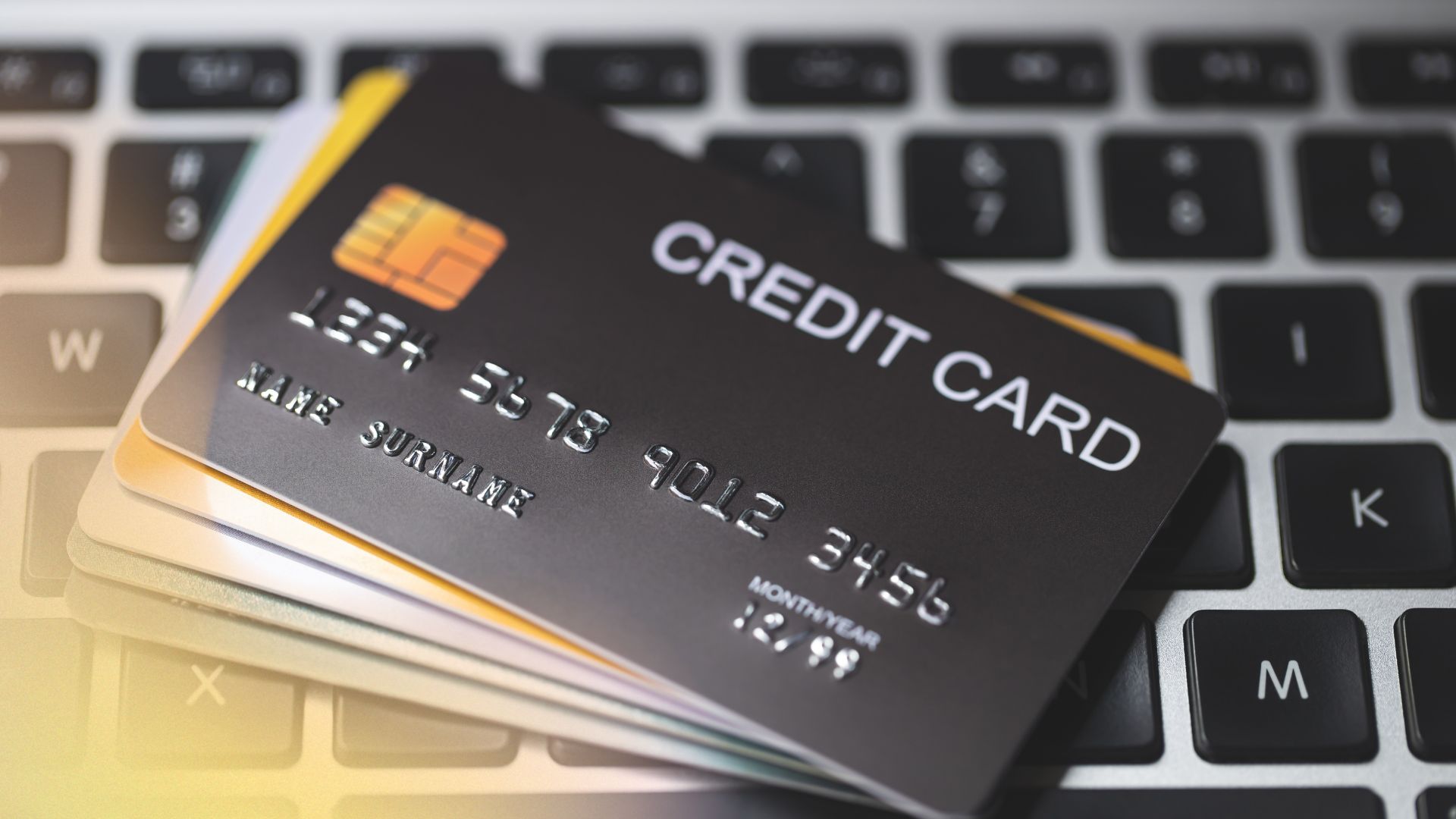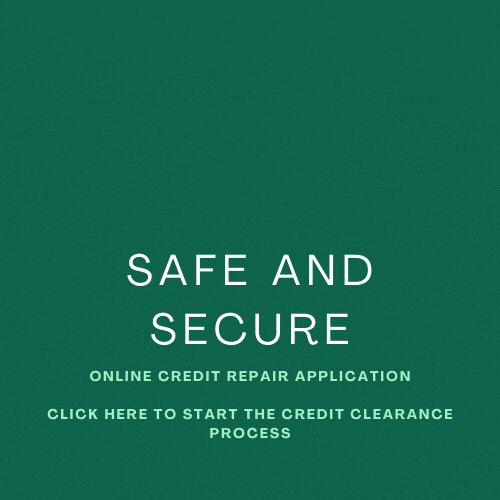Credit vs Debit Card: Which Card do I Need and What Should I Use?
Want to spend your money wisely? Then you should know the difference between a credit vs debit card and which you should use for different purchases.
Currently, South Africans are spending 75% of their take-home pay on debt, which suggests that many don't have good financial practices.
If you want to keep your hard-earned money in your pocket, then you need to know your options when it comes to plastic. For example, do you know the difference between credit and debit cards? And if so, do you completely understand the responsibilities that come with them?
To learn more, read on for a brief credit vs debit cards guide. We'll also discuss which ones you need and when!
What's a Credit Card?
If you have a credit card, you can use it at any merchant with credit card facilities. It will enable you to make purchases with money that you do not necessarily have in your pocket. As soon as you apply for a credit card and the card is approved and issued, you may qualify for a credit line pre-approved by the institution that issued the credit card. It is essentially a way for you to make purchases on credit using a line of credit that is available to you.
For example, consider a scenario where you are sitting with R200 in the bank. However, you can use a credit card to borrow money and finance a purchase of R20 000 rands. You're then required to pay a minimum amount to the lender every month. You must repay the principal (what you spent) and the interest each month. Due to this fact, it will be your responsibility to repay that money to the lender. Payable in full at the end of each month or over a certain period. You should be prepared to incur skyrocketing interest rate charges if you miss a payment.
Advantages of a credit card. It is imperative to realize that credit cards provide more benefits than simply letting you shop with a credit card; they also help improve your credit rating, creditworthiness, and credit scores. You can boost your credit score with all the different credit bureaus in South Africa by knowing how to use a credit card. You should also know how to take advantage of the credit facility and make sure you repay the amount used on time.
You will be able to obtain credit facilities in the future without any difficulty by doing this. When an urgent situation arises, some credit cards allow you to withdraw money up to a predetermined limit from your account. You will not be charged interest until 45 or 50 days after you have received the money. It is an option that you can rely on in times of financial difficulty. Consumers are attracted to credit cards because of their credit limits. There is no doubt that credit cards make for highly desirable products since consumers can buy anything within the credit limit and pay for it later.
What's a Debit Card?
A debit card is also a card you can swipe, but it's linked to your bank account. When you make a purchase, it'll deduct from your bank account balance immediately.
If you have debit cards for your savings or cheque account, you can also use it at any Automated Teller Machines (ATM) to make deposits, withdrawals, and payments from your account.
The process of using your debit cards at an ATM will require you to insert your debit card into the machine and enter your personal identification number (PIN) to complete the required transaction. It is highly possible that you might have to pay an additional Saswitch fee if you use an ATM that doesn't belong to the bank that you have an account with.
You can technically borrow credit with your debit cards as well; this is called having an overdraft. However, doing so isn't recommended, as the associated fees can be astronomical. But it can be a good safety net if you've run out of money unexpectedly and need to pay bills quickly.
Advantages of Debit Cards.
There are many advantages to using debit cards, including the ease of use and convenience of these cards.
- There are no annual fees involved in using any debit cards. For the most part, banks do not charge annual fees, although a nominal fee may apply as part of maintenance or service charges. Banks may charge different amounts depending on the services they offer.
- Using a debit card is exceptionally secure as you must enter your PIN code before every transaction you make. When a debit card is lost or stolen, the cardholder can immediately contact their financial institution to have it blocked. Most of these banks have contact centers available 24 hours per day.
Debit cards have certain disadvantages.
Disadvantages of a Debit Card.
- Since money is taken directly out of your bank account via your debit card and there are no credit facilities available, if the amount you have available isn't enough to cover the transaction, the transaction will be declined.
- With a debit card, you can only use the available balance in your bank account to make purchases.
- If you lose your debit card and someone else gets their hands on it, you might end up in a difficult financial situation. It is essential that you report the loss or theft to your bank immediately to prevent the theft of all your funds.
Credit vs Debit Card: Similarities
There are several ways in which credit cards and debit cards are similar. Credit and debit cards allow you to purchase things without having to carry cash with you. Both have expensive fees for either missing a payment or going over your credit limit. These can become expensive and add up a lot with both if the account is overdrawn monthly.
- Fees and methods of purchases. If you use a debit card, you won't be subject to any interest or fees, although some small charges may apply for purchases made with debit cards. In addition to that, they may also charge fees for cash advances, late fees for payments, and fees for exceeding credit limits. Several credit cards charge an annual fee just for the privilege of being able to use the card. Additionally, debit cards may impose a fee for purchases exceeding the available balance as with withdrawals from an automated teller machine operated by a competitor.
- Loyalty programs. Due to the competitive banking environment in South Africa, both credit cards and debit cards offer points and cash-back incentives for purchases made with the cards. In addition to racking up points for everyday purchases, such as groceries, petrol, and clothing, you may also accrue points for travel expenses. It is advisable to contact your financial banking institution since rates and restrictions may vary widely depending on which institution offers you the rewards program.
While these cards might look and feel the same, that's where the similarities end.

Credit vs Debit Card: Differences
To get a credit card, you'll need to have a good enough credit score to be approved for one. But anyone can open a bank account, and therefore, it's much easier to get a debit card.
In addition, there are interest rates attached to credit cards, while there are none for debit cards. But the upside is, you can build credit with credit cards, whereas you can't with debit cards. On the other hand, if you miss payments, this can hurt your credit score.
Because debit cards are attached to bank accounts, most people only have 1 or 2. But you can apply to multiple companies for credit cards, and so long as you're approved, you can hold as many as you want.
Credit vs Debit card: Credit Scores
Debit Cards and credit scores. You don't owe the bank any money when using a debit card to make purchases, so it has no bearing on your credit score. There is a misconception among a number of consumers in South Africa that by using debit cards rather than credit cards, they will be able to actively improve their credit score with the various credit reporting agencies. It is imperative to realize that debit cards can be an effective tool to demonstrate an individual's ability to control their spending, but it is equally important to recognize that the card does not reflect a person's ability to manage their debt. As a result, their credit score will not be affected in any way.
Credit Cards and credit scores. There are numerous ways how using a credit card could affect your credit score in a positive or even a negative way. When determining how the use of a credit card influences your credit score, there are several factors that need careful consideration. These factors start with how you use the credit card, which continues with your habits and the usage of the set credit limit, and finally ends with your payment record.
Your credit score will improve over time if you manage your credit cards the same way you would debit cards. That is in comparison to a consumer paying with a debit card. If you use your credit card in the right way and pay it off as soon as possible, you can help to improve your credit score or damage it, depending on your actions.
It is crucial that you make all your credit card payments on time every month to boost your credit score. Payment histories appear to be one of the most influential factors in credit scoring models. You will be able to improve your credit score over time if you submit your minimum credit card payment at least once a month by the due date. When you fail to make a payment, your credit score can be negatively affected.
If you want to avoid paying interest on your credit card balance every month, it is advisable to pay off your credit card balance every month. But, because of several reasons, it may not always be possible. We recommend maintaining your credit utilization rate under 40 per cent across all your credit agreements and accounts. It is common knowledge that maxing out your credit cards can adversely affect your credit utilization score, but it can also make it challenging to keep up with your payments, especially when interest charges become a factor. read the following article credit vs credit card and how to increase your credit scores.
Pick the Right Card for Your Needs
Now that you know more about credit vs debit cards, you can pick the right cards for your needs. When it comes to completing transactions, debit cards and credit cards are equally useful tools. These are not only convenient cash alternatives, but they are also convenient tools. However, before you use them, you should keep in mind the risks and uncertainties you might encounter with them.
The benefit of owning both cards is that if you find yourself in a demanding situation, you will have a broader range of options to choose from to take care of it. It is up to you whether you want to go with a credit card or a debit card, but if you don't trust yourself with a credit card, go with a debit card so your spending does not get out of control.
If you already have debt and need help with debt review, debt counselling or debt review removal, then contact us today. We'll be more than happy to help you get back on your feet!
At Credit Salvage, we assist consumers with impaired credit records or who are blacklisted by providing them with a range of services, including Credit Clearance and Debt Counselling. In addition, we offer several other options. Our team will analyze your situation and advise on the best course of action for you. Please contact us today or complete our easy online application by clicking the credit bureau clearance photo below.
Sources - Other good reads


